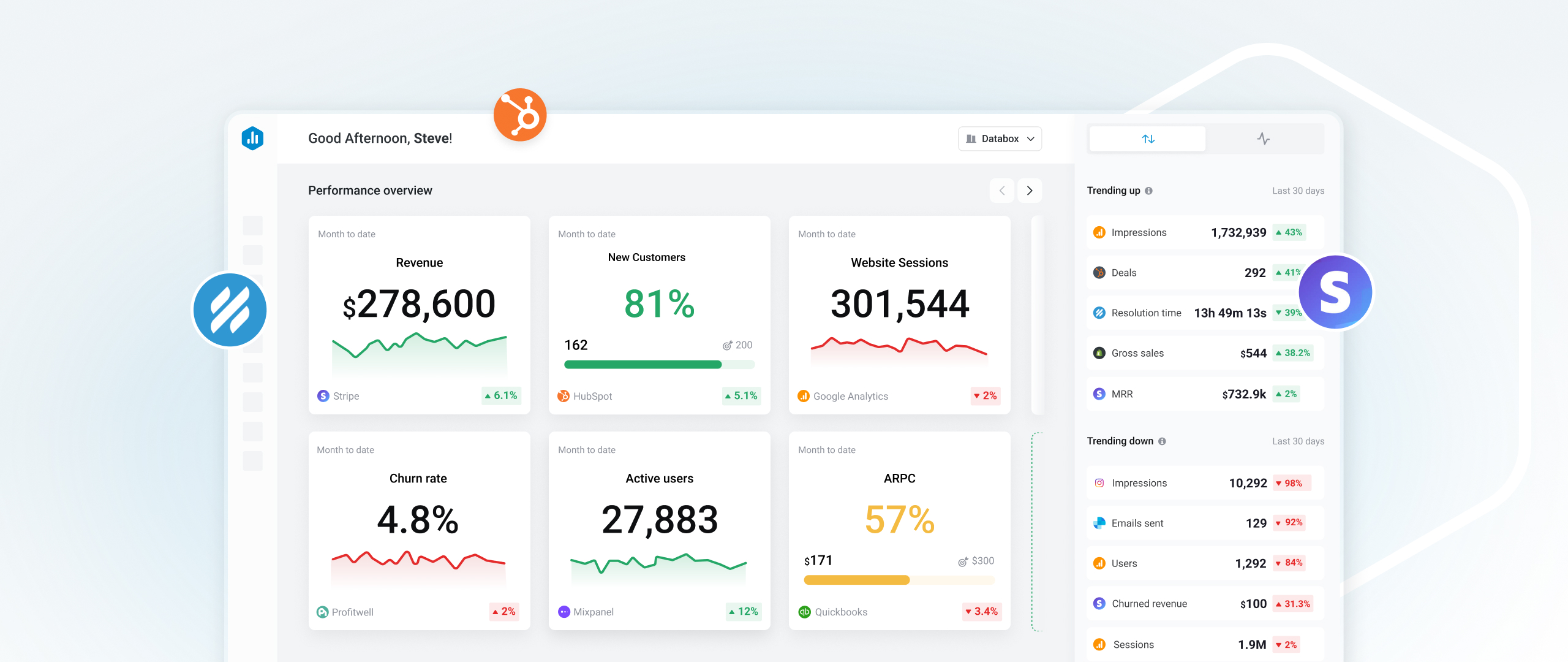
The Power of Marketing Scorecards: Aligning KPIs with Business Objectives for Enhanced Performance
Marketing teams have always faced the challenge of demonstrating their impact on overall business success. Now, more than ever, results need to be measured accurately and reported instantly. One effective way to achieve these mandates is through the use of marketing scorecards. Scorecard tools not only help in measuring key performance indicators (KPIs) but also ensure that marketing efforts are aligned with sales and broader business objectives. Done correctly, they add visibility but not overhead—day-to-day use of marketing systems and processes delivers scorecard reporting automatically. By leveraging frameworks like the Entrepreneur Operating System (EOS) and tools such as Databox, marketing teams can enhance both performance and accountability. In this article, we will explore the power of marketing scorecards, how to align KPIs with business goals, and the importance of regular reviews in driving success.
Understanding Marketing Scorecards
What is a Marketing Scorecard?
A marketing scorecard is a strategic tool that allows marketing teams to track and measure their performance against predefined KPIs. It provides a clear view of how marketing activities contribute to business objectives, enabling teams to make data-driven decisions. Scorecards typically include metrics related to lead generation, conversion rates, customer engagement, and overall marketing ROI.
The Importance of KPIs
Key Performance Indicators (KPIs) are essential for measuring the effectiveness of marketing strategies. They provide insights into what is working and what needs improvement. By aligning KPIs with sales and business objectives, marketing teams can ensure that their efforts are directly contributing to the company’s success. For instance, if a business goal is to increase revenue by 20%, the marketing team might set KPIs related to lead generation and conversion rates that support this objective.
Aligning KPIs with Business Objectives
The Role of the Entrepreneur Operating System (EOS)
The Entrepreneur Operating System (EOS) provides a framework for businesses to structure their operations and align their teams. One of the key components of EOS is the use of scorecards to track KPIs on a weekly basis. This regular review process allows teams to stay focused on their goals and make necessary adjustments in real-time.
Weekly Meetings and Accountability
In the EOS framework, weekly meetings are crucial for maintaining alignment and accountability. During these meetings, teams review their scorecards, discuss progress towards KPIs, and identify any obstacles that may hinder performance. This structured approach fosters a culture of accountability, ensuring that everyone is aware of their responsibilities and the impact of their work on overall business objectives.
Leveraging Databox for Reporting
To implement scorecards and track KPIs effectively, many marketing teams utilize tools like Databox.
Databox allows teams to visualize their performance data in real-time, making it easier to monitor progress and identify trends. By integrating various data sources, the platform provides a comprehensive view of marketing performance, enabling teams to make informed decisions quickly.
The coalescence of data from disparate systems combined with graphical visualizations of information is at the heart of business intelligence tools like Databox. Data extraction and updating is done automatically through application programming interfaces (APIs) to eliminate “export, import, cut, paste” tasks. Watch this video to see how simple it is to join data sources to make custom scorecards once the data feeds are in place:
Best Practices for Creating Effective Marketing Scorecards
1. Define Clear Objectives
Before creating a scorecard, it’s essential to define clear business objectives. What are the key goals for the upcoming quarter or year? How does the marketing team plan to contribute to these goals? By establishing specific, measurable objectives, marketing teams can create scorecards that align with overall business strategies.
2. Select Relevant KPIs
Choosing the right KPIs is critical for effective scorecards. Focus on metrics that directly relate to business objectives and provide actionable insights. For example, if the goal is to increase customer retention, relevant KPIs might include customer satisfaction scores and repeat purchase rates.
3. Regularly Review and Adjust
Scorecards should not be static; they require regular review and adjustment. During weekly meetings, teams should assess their performance against KPIs, discuss any challenges, and make necessary adjustments to their strategies. This iterative process ensures that marketing efforts remain aligned with business objectives.
4. Foster Collaboration Across Teams
Collaboration between marketing and sales teams is essential for success. By sharing scorecards and performance data, both teams can work together to achieve common goals. This alignment fosters a sense of shared responsibility and accountability, ultimately driving better results.
Conclusion
Remember that unless everyone in the organization pays attention to scores and actively uses them to improve performance, scorecards will be useless. Conversely, marketing scorecards done right are powerful tools that enable marketing teams to measure their performance and align their efforts with business objectives. By leveraging frameworks like the Entrepreneur Operating System and tools such as Databox, teams can enhance their accountability and drive better results. Regular reviews and collaboration across teams are essential for maintaining alignment and ensuring that marketing strategies contribute to overall business success.
Are you ready to take your marketing performance to the next level? Explore how Market Vantage can help you implement effective scorecards and leverage tools like Databox for better reporting. Contact us today to learn more about our business intelligence solution!
By following these guidelines and implementing effective scorecards, marketing teams can not only measure their success but also demonstrate their value to the organization. Embrace the power of data-driven decision-making and watch your marketing performance soar!




